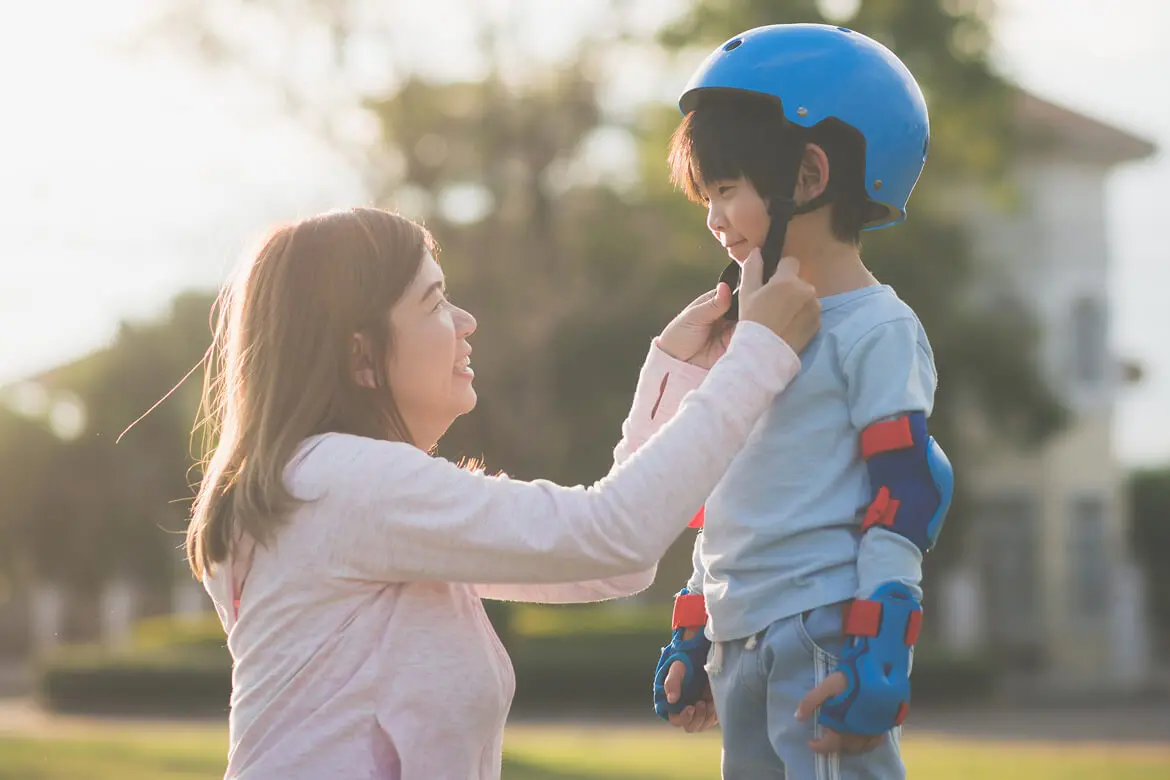Dr Lim Yi-Jia
Orthopaedic Surgeon


Source: Shutterstock
Orthopaedic Surgeon
As parents, we all know how accident-prone children can be. One minute they're running along excitedly and next minute – bam! – they have fallen and scrapped their knee, or twisted an ankle.
With active children, the occasional injury is to be expected. But when your child becomes keenly involved in organised and recreational sports, be it cycling or soccer or basketball, the risk of injury increases. So how can you help your young athlete strike a healthy balance between exercising regularly and staying safe?
Here are 8 tips to bear in mind.
Compared to adults, children are more vulnerable to sustaining injuries due to their growing bones and their evolving ability to take instructions well. Most serious sports injuries involve the growth plates of children.
While effective medical treatments are easily accessible today, avoiding injuries should be the primary goal for your child. To minimise the risk of injury, close and competent supervision is required at all times, regardless of the sporting activity.
A sensible approach needs to be taken for children participating in sports. More importantly, children need to learn proper techniques for any sport to avoid injury. Work with your child's coach to ensure your child uses appropriate equipment, follows safety guidelines and takes all the necessary precautions.
When kids are enthusiastic about something, waiting can seem like agony. As a result, they may be tempted to skip the all-important warm-up session and dive right into the game. Remind them that warming up helps to prepare their bodies for the sport, and helps to prevent injuries which might keep them from their favourite activity.
Any kind of sport involves exertion and loss of fluids through perspiration. So regardless of what sport your child plays, whether it's played indoors or outdoors, remember to supply them with water for the duration as dehydration can lead to fatigue, confusion or fainting.
They should aim to consume water before, during and after playing sports. Remember that many sports beverages also contain high levels of sugar and should be taken in moderation.
Children need sufficient rest for growth and development, and if they are actively engaged in sports, sleep allows physical recuperation. Rest is also important to avoid muscle fatigue.
Growing children need to receive the right balance of nutrients to keep their bones and tissues healthy, and this is especially important for young athletes! Aim for a balance of complex carbohydrates for sustained energy, protein for tissue and muscle growth and repair, as well as healthy fats from plants, nuts and fish.
Intense training and early specialisation are more often the decision of the parents or coach rather than the child. While some children demonstrate very early talent for certain sports, and may wish to spend more time in those sports, it is important to remember that specialising and overtraining for sports can sometimes lead to negative outcomes.
In addition to the risk of repetitive injuries, muscle fatigue and other problems associated with overtraining in a particular sport, parents of older children and adolescents also need to be aware of what is known as the female athlete triad.
Female athlete triad is the combination eating disorders, disruption of the normal menstrual cycle, and osteoporosis (loss of bone mass). As its name suggests, the problem affects mostly female athletes, and parents of young female athletes need to be aware of this potential danger, and seek professional help if required.
Rather than encouraging your child to focus on one particular sport, you should develop them in multiple aspects to have a balanced social and physical development. It is important that even if they choose to undergo intensive training, the joy for the sport should not be lost in the process.
At the end of the day, children should enjoy whatever sport they play. As long as the sport is enjoyed and played safely, the goal of living a healthy lifestyle would be achieved.
Remind your child:
While your support and encouragement play a big role in helping your child stay active and healthy, you should also remain vigilant for any tell-tale signs of injury, such as changes in the way they move or play their sport, as these could be early warnings of something more serious.
If you have any questions or concerns about your child's growth and development, or suspect a possible injury, you can find out more about the paediatric treatments we offer at Gleneagles Hospital.